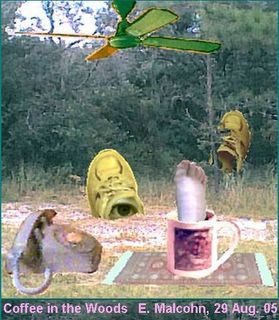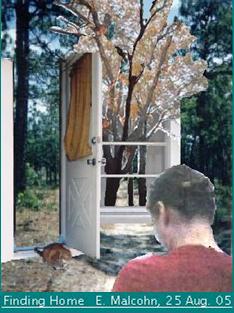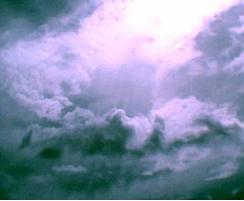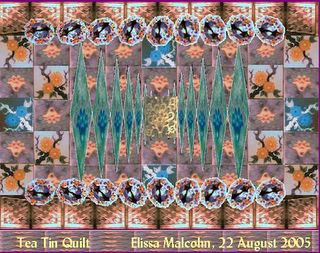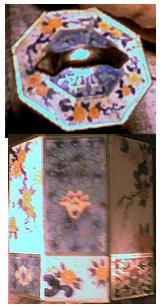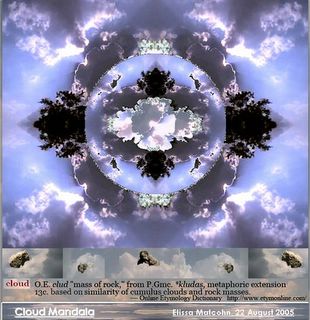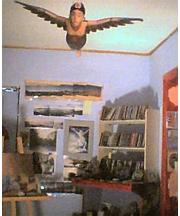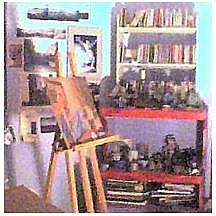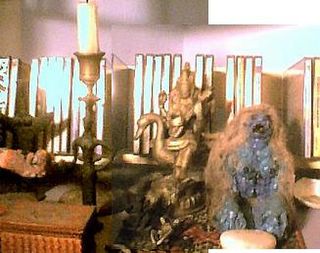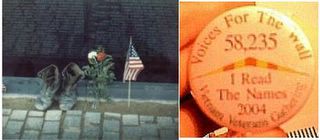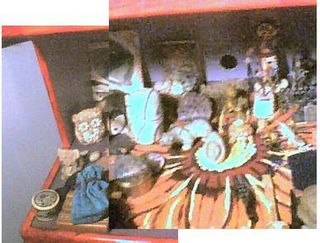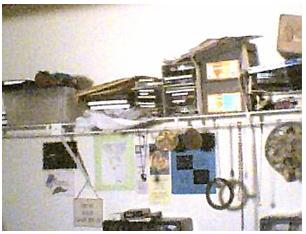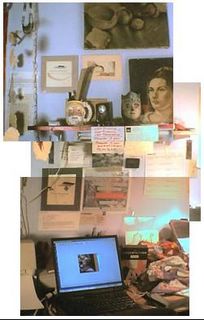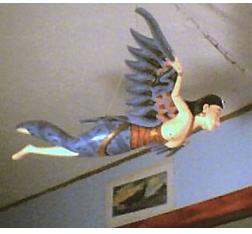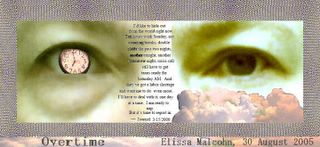
 Sometimes I still get bags under my eyes from meeting deadlines, but this time I had stayed up half the night watching The Weather Channel instead....
Sometimes I still get bags under my eyes from meeting deadlines, but this time I had stayed up half the night watching The Weather Channel instead....Each of my eyes comes from a different photograph. The clock normally lives in the bookshelves near our dining table, though I photographed it in our better-lit kitchen, leaning it against the coffee maker.
The clouds combine three different shots. The mesh frame is taken from a picture of one of our rain barrel covers. I'd actually taken that shot in an attempt to capture some interesting-looking, metallic-green bugs (our field guide pegs them as Green June Beetles) who ended up as blurs. The text (readable by clicking on the photo) is taken from a March 15, 2000, journal entry:
I'd like to hide out from the world right now. Ten hours work Sunday, not counting breaks, double shifts the past two nights, another tonight, another tomorrow night, crisis call -- still have to get taxes ready for Saturday AM. And they've got a labor shortage and want me to do even more. I'll have to deal with it one day at a time. I am ready to nap. But it's time to report in.I no longer have the commute of at least an hour each way on public transportation, followed up with work at home until midnight or 1 AM after a rushed supper. Though sometimes my longer commutes were mini-vacations in themselves -- time for leisure reading or writing, except for when I took home large editing jobs and wielded my red pen on the subway. Sometimes I left early to spend time at a cafe -- another mini-vacation, "renting" my writing table for the price and duration of a cup of coffee. For a few minutes I had a psychological mini-buffer, a point of refreshment before completing the trip to my office.
Time pressure had been my constant companion. I did the self-portrait below in college: no head, sketchy nude torso, but I had pressed hard on my pencil to draw the watch-pendant I used to wear. That, I reasoned, had for better or worse become my true identity. Time ruled me.
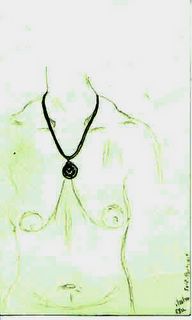



Some months ago a client expressed surprise that I'd worked through the weekend, but I'd done the same thing repeatedly when we were coworkers. Perhaps the difference is that now the way I spend my time is more my choice. The clock flexes. "Comp time" is a thing of the past -- now that I am paid for all the hours I work I have more leeway to play.
Another client, who has also turned to freelancing, recently told me, "I learned more about you in a few minutes of looking at your web page than in the 12 years we worked together."
Which tells me: It's about more than time. It's always been about more than time.
